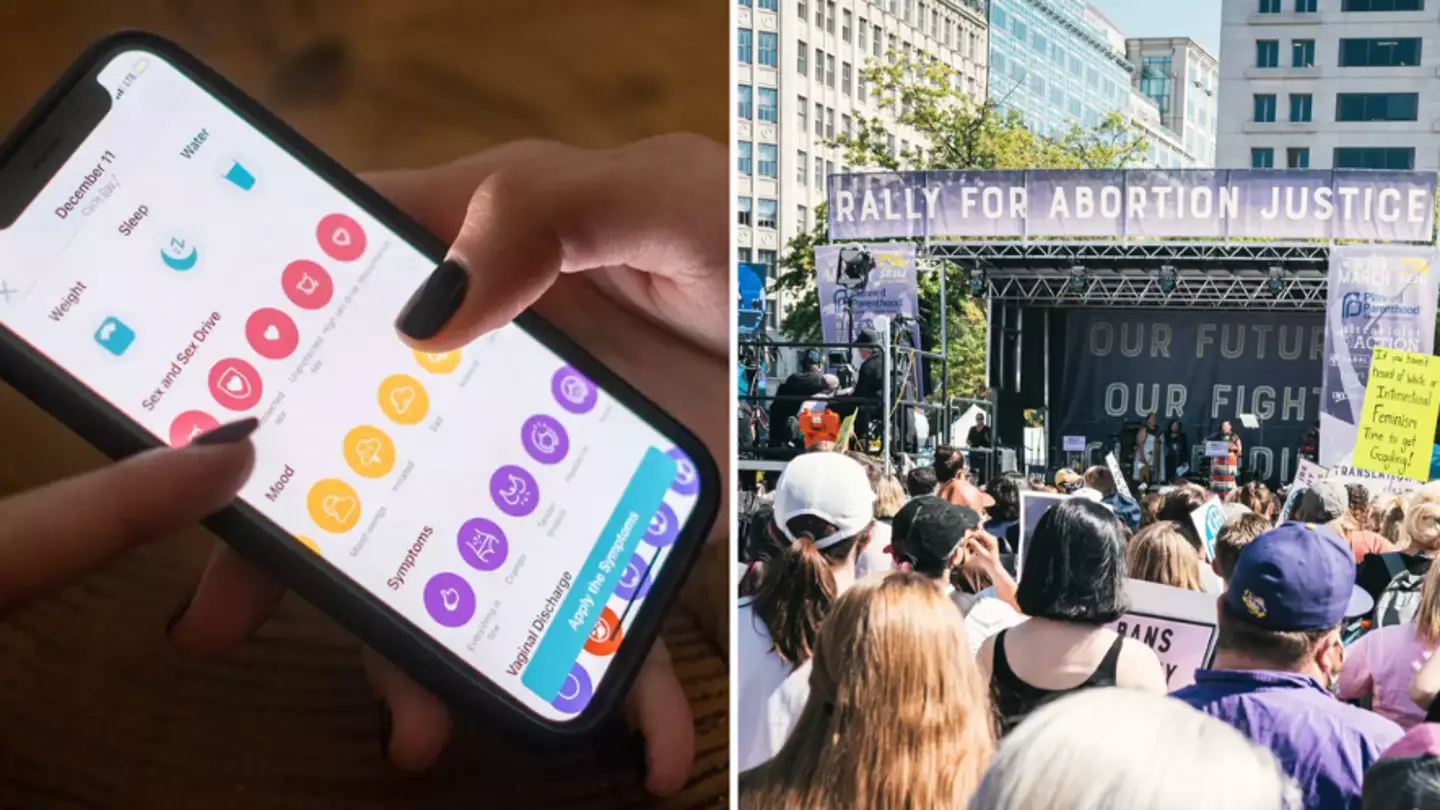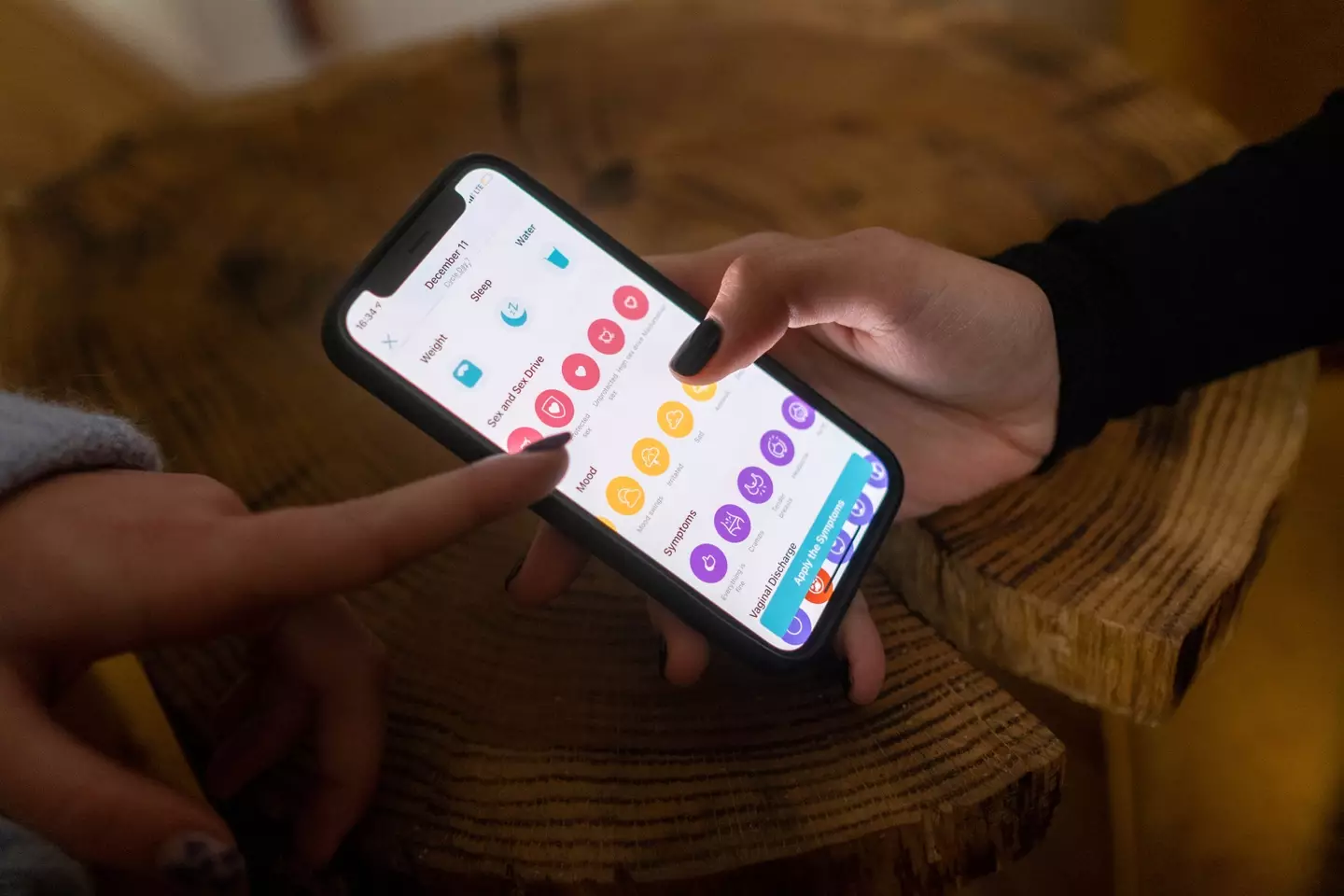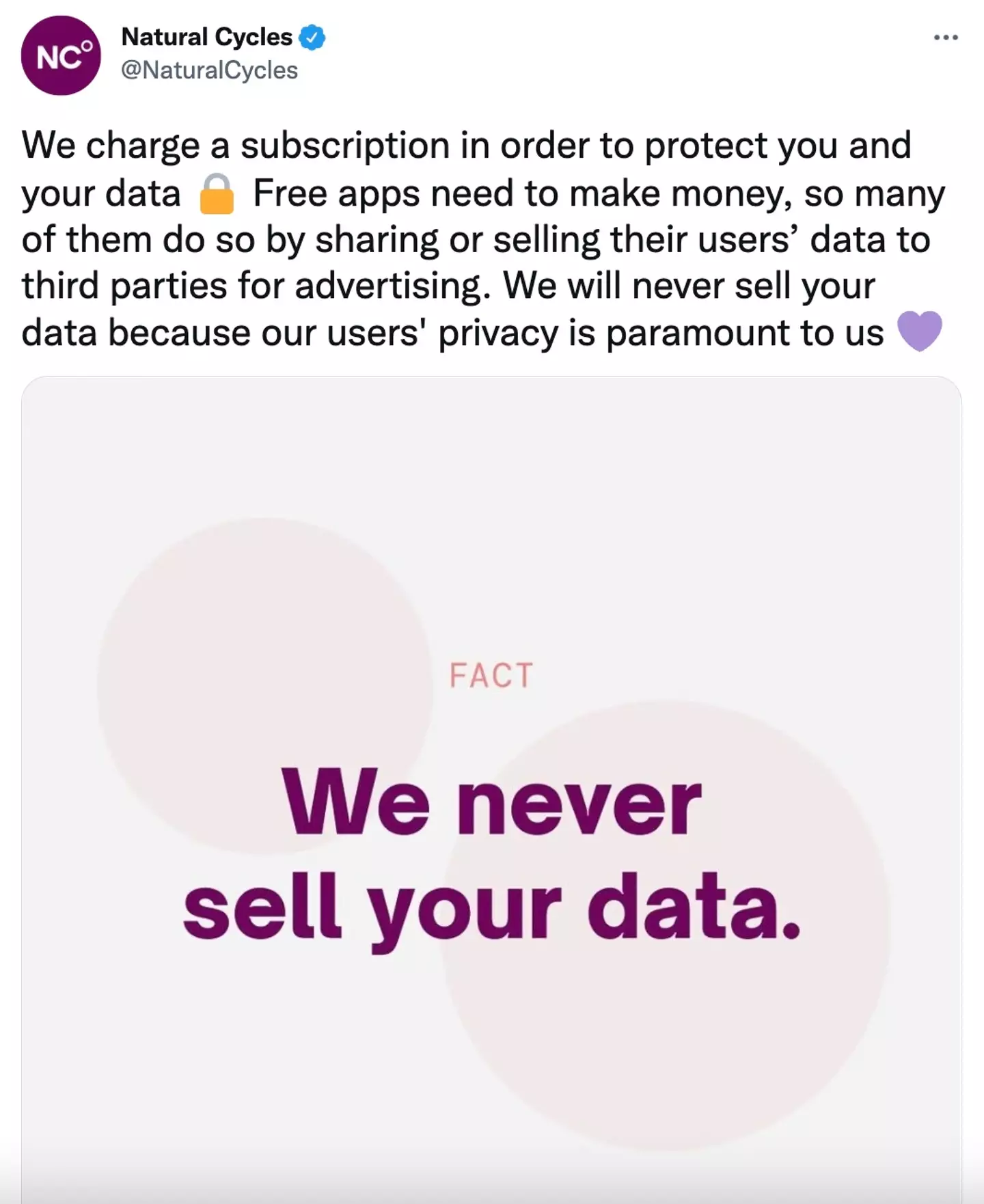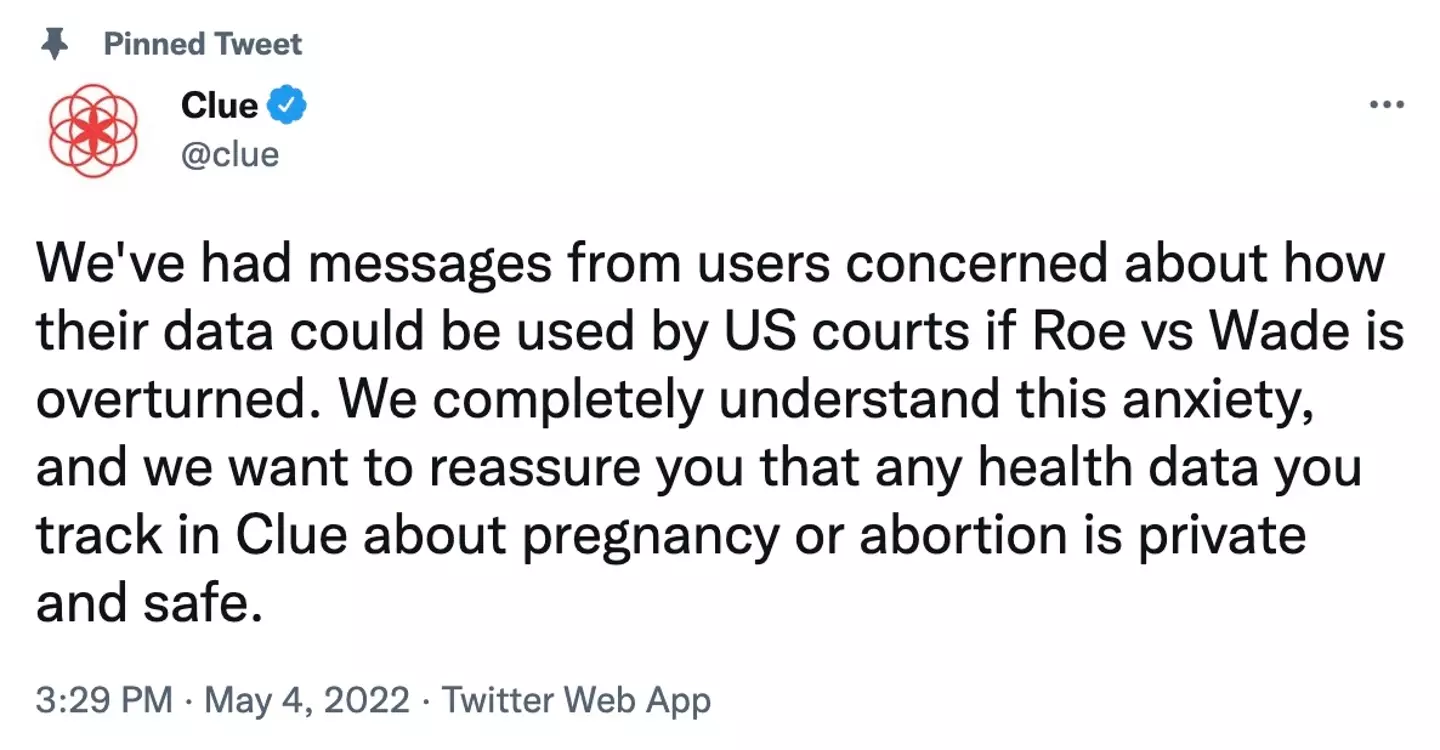
Women in the US have been warned to delete their period-tracking apps in the wake of this week's devastating Roe v. Wade news.
On Monday, a draft majority opinion was leaked, which stated that the US Supreme Court voted to overturn Roe v. Wade - the landmark 1973 bill that guarantees women the right to an abortion up until fetal viability.
The news has sparked concern among women about the kind of data they are sharing regarding periods, miscarriages and terminations over fears that it could be shared with the authorities and used to prosecute them.

Advert
“If you are using an online period tracker or tracking your cycles through your phone, get off it and delete your data. Now,” one person tweeted.
Another wrote: “For your safety: s***’s about to get scarier than you can imagine in states like Texas. Don’t discuss illegal plans on social media. Delete your period tracker apps. Don’t write anything down.”
But are their fears surrounding cycle-tracking apps legitimate? Ray Walsh, a digital privacy expert at ProPrivacy believes so.
"There appears to be a real danger that if anti-abortion laws are passed in the US, menstrual cycle tracking app data could potentially be exploited to place women under surveillance and single them out if they become pregnant and are later suspected of terminating their pregnancy,” he tells Tyla.

Despite these concerns, Ray predicts that app use of this type will soon be on the up.
“In a country where abortion is not legal or made incredibly more difficult to access, the need for women to track their menstrual cycle becomes vital,” he explains. “This means we could see an increase in the use of these kinds of apps.
“The stark reality is that while cycle tracking apps can be useful, they also harbour serious privacy risks. Any woman who uses a menstrual cycle tracking app could expose herself to the potential that her data might later be exploited to mount a case against her if she suffers a legitimate miscarriage.”

It may sound far-fetched, but a similar situation recently arose in the case of Lizelle Herrera, who was arrested for "intentionally and knowingly causing the death of an individual by self-induced abortion" in January, with the hospital she attended appearing to report her to the authorities.
The charges against Lizelle have since been dropped, but her case highlights the 'serious' potential risks for women accused of illegally ending their own pregnancy, in a world where their personal data could potentially be used against them by prosecutors.
“There is no doubt that menstrual tracking apps harbour serious risks, and we encourage women to carefully consider the use of these apps and how it may affect the privacy of their sensitive menstrual cycle information,” he says.

“It is vital that women understand how an app intends to use any data they upload because it is possible that the company will share this menstrual cycle data with third parties.
“Even if a menstrual tracking app has a strong privacy policy in place, there is a possibility that a US-based app developer could be served a warrant and even a gag order that allows the government to harvest all of that data in secret.”
Ray concludes: “Under these circumstances, it is easy to understand why there is growing distrust for these apps and the potential risks they may create for women if abortion is criminalised.”
Following the worries surrounding period-tracking apps, popular brands like Flo, Clue and Natural Cycles have released statements to reassure their users.

Clue wrote on Twitter: “We've had messages from users concerned about how their data could be used by US courts if Roe vs Wade is overturned. We completely understand this anxiety, and we want to reassure you that any health data you track in Clue about pregnancy or abortion is private and safe.
“And we are based in Berlin. As a European company, Clue is obliged under European Union law (the General Data Protection Regulation, GDPR) to apply special protections to our users' reproductive health data. We will not disclose it. We will stand up for our users.”
Flo wrote in a statement: “We have heard concerns surrounding data privacy should Roe v. Wade be overturned. We understand these concerns and want to assure you that your data is safe with Flo. Flo does not share health data with any third party.
“In fact, in March 2022 Flo completed an external, independent privacy audit which confirmed there are no gaps or weaknesses in our privacy practices. Beyond this, the audit confirmed that our privacy efforts are fully compliant with the EU-US Privacy Shield Framework Principles.”

Natural Cycles wrote: “We charge a subscription in order to protect you and your data. Free apps need to make money, so many of them do so by sharing or selling their users’ data to third parties for advertising. We will never sell your data because our users' privacy is paramount to us.
“The climate has clearly changed over the past 72hrs & we will be evolving our Privacy Policy to make sure our users are protected against unimaginable potential legal situations.”
For abortion access and support in the US, visit Planned Parenthood here. For information on how to access an abortion in the UK and Northern Ireland, visit the NHS website here. For abortion access and support in Ireland, which has been lawful since March 2020, visit HSE here.
Topics: Health, Sex and Relationships, Technology, News, Life
